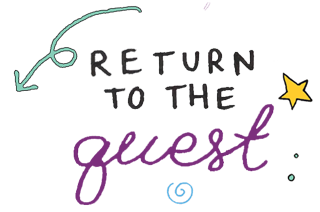
The comedy of the everyday
| Objective: To make your views on the concept of everydayness shine in a stand-up comedy act! |
Duration: 30 to 60 minutes
Material:
- Your imagination
- Sheets of paper and pencils
Instructions:
- Find inspiration. What actions do you repeat every day? Brushing your teeth, looking for your keys, looking at your phone, doing your homework, washing the dishes... These redundant activities can be boring, but they can also be hilarious! Observational comedy is a form of humour based on everyday life that is inspired by these mundane activities. It is one of the main types of stand-up comedy—or comic monologue. In this type of show, the comedian observes everyday life and offers a comic perspective on it. The show usually takes the form of a personal story that begins with "Have you ever noticed...?” or "Have you ever wondered...?" and ends with an unexpected punchline. Here are some examples of openers:
- "Have you ever wondered what dogs think when they see us looking at rectangles all day long?”
- "Have you ever noticed that our keys are hardest to find when we need them most?”
- "I wonder why my parents always say it's their house... but as soon as it's time to clean up, it magically becomes my house too!
- "My room isn't a mess! I just put up obstacles for burglars!”
- Create your stand-up. Run through your memories of a normal day in your life. Find a few events, actions or thoughts that could be turned into jokes. Explore the absurdity of repetition or the strangeness of an action we find normal. "Why make your bed every day, only to undo it every night?” "Isn't it strange to shake hands?" Imagine the perspective of an object or an animal. "The fridge must really find me annoying... it's because I struggle to tell the difference between boredom and hunger!" The possibilities are endless! Write down all your ideas to create your stand-up comedy act.
- Set the scene. The typical set in a comedy show is very simple and sober: a stool and a microphone on a stage. You can recreate it at home to present your show or imagine a set that could add an extra layer of inventiveness to your performance. What would be the best scene to represent everyday life?
- Play your stand-up. When everything is ready and the timing is right, invite your loved-ones to sit down and laugh at your stand-up comedy act on the everyday!
- Think about your stand-up. Was it easy or hard to make the everyday funny? With members of your audience, think about the following questions: Is everydayness boring? Is it necessary to break our routine? Does everyday life deserve a place in the spotlight?
...
Bonus: Do you still feel like laughing? With the members of your audience, imagine that it suddenly becomes impossible to repeat an action more than once in the same way! What could be different ways to brush your teeth? ...to eat? ...to move around? Routine may make our lives easier, but sometimes we can become too set in our ways... should everyday life be more creative? |

| Tricks for tots: Imagine that one of your stuffed animals is explaining your daily routine to your other toys. What would it say? Do you think it would find you really strange? "Humans are really weird! Every morning they rub a piece of plastic over their teeth and spit out the paste they just put in their mouth! And I thought we weren't allowed to spit in the house or to waste food..." Inspired by your stuffed animal's perspective, discover the hilarious things we do every day without realizing it and share them with your audience! |
| Tips for teens: Do you know the myth of Sisyphus? As punishment for daring to defy the gods, Sisyphus was condemned to push a rock to the top of a hill, only to have it immediately roll to the bottom again every time, for eternity. His task had to be continually and eternally restarted! Can a parallel be drawn between Sisyphus' punishment and everyday life? According to Albert Camus, who wrote a book about this myth, "one must imagine Sisyphus happy." He thought that people who carry out the same tasks every day do not have a less absurd destiny than Sisyphus did. According to you, can we be happy living a life of routine? Can an endless project be a source of happiness? Ask yourself whether you have to achieve something in order to feel satisfaction... or if perpetual work alone can be enough? |
Share your creative reflections by sending them via email.
Include photos of your projects and notes of your thoughts, as well as your first name and your age!


